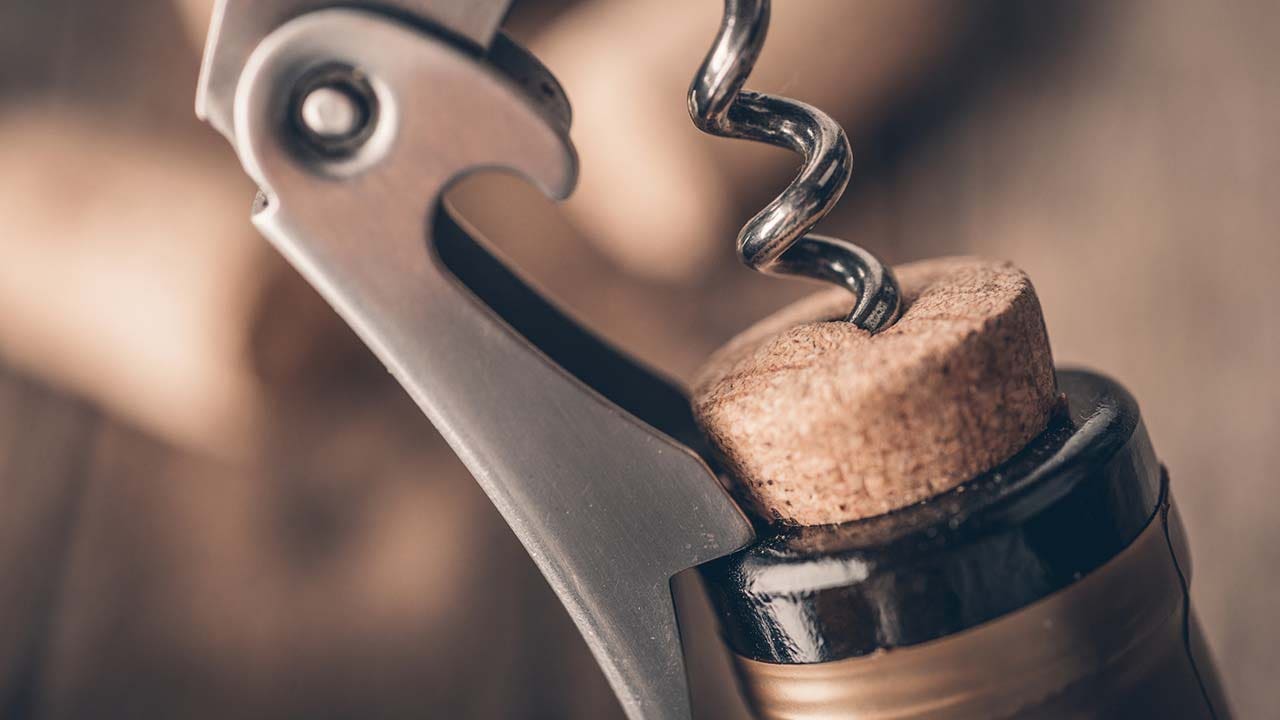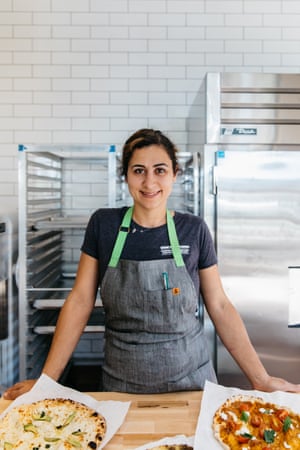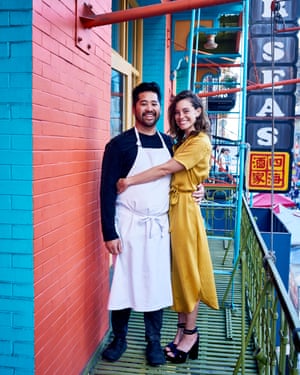'Cooking as therapy': California's top chefs on the recipes that got them through 2020 - The Guardian |
- 'Cooking as therapy': California's top chefs on the recipes that got them through 2020 - The Guardian
- Food hacks: The cooking tricks and culinary shortcuts that went viral in 2020 - Fox News
- Greater Broward Chapter of the Pap Corps is 'Cooking for a Cure' January 26 - Parkland Talk - Parkland Talk
- Recreating Indonesian Home Cooking With 'Coconut And Sambal' - NPR
|
Posted: 28 Dec 2020 01:00 AM PST California's Bay Area is home to some of the country's best restaurants, and many global food trends – from the sourdough craze to the farm-to-table movement – can trace their roots back here. But with the pandemic upending the restaurant world, Bay Area chefs have been doing what we're all doing: cooking and eating more at home, and turning to food as a source of comfort, nostalgia and creative relief. We caught up with our favorite chefs, some of whom have been driving the Bay Area's scene for decades, and others who are shaping its future: Alice Waters, the doyenne of seasonal eating and founder of Chez Panisse; Gilbert Pilgram, the exuberant head chef of the longtime San Francisco favorite Zuni Cafe; Sarah Kirnon, the founder of Oakland's beloved Caribbean restaurant Miss Ollie's; Brandon Jew, the founder of the boundary-pushing Chinatown eatery Mister Jiu's; and Reem Assil, whose California-inspired take on the traditional Arab bakery has won Reem's national accolades. We asked them to discuss the role that food is playing in their lives right now, and the dishes they're turning to most often. And each have shared a recipe that readers can make in their kitchens at home. Interviews have been condensed for length and clarity. "Making jerk chicken triggered emotions I hadn't addressed" Sarah Kirnon, Miss Ollie's For me, this time has really been all about more outdoor cooking – lots and lots of grilling. Which is something I do anyway, but now it's been more intentional, because I still love having people around. In my circle of friends and family, I've always been the person that cooks for birthdays and special occasions, usually at my house in Oakland, and that feels like a safe way for us all to be together. My partner and daughter are vegan, so we do veggie and meat grills. And a friend of mine recently gave me this really beautiful smoker/grill; she actually bought it with an ex-boyfriend and was convinced it had bad juju, so I inherited it. On Labor Day, I marinated some jerk chicken and smoked it for four hours. We made the grill the centerpiece of the garden, we had music, it was just a really beautiful day. The smoke, the smell of the allspice wood, it reminded me of home. Which was a bit sentimental, because this is the first year that I haven't been back to Barbados to see my family. I wasn't sad, but it was emotional. I thought I was dealing with Covid really well, but not being able to see my extended family – who all live in London, Barbados and other islands of the Caribbean – triggered in me emotions I don't think I had addressed. I was born in the late 60s, when dining out meant you supported a small, neighborhood joint, where you went for birthdays and family occasions. That's changed a lot over the years. So, at the restaurant, it has been beautiful to see people slow down a bit, people being happy to wait, happy to engage with somebody outside their home. I hope that's one of the things we hold onto when things go back to normalcy. "My daughter and I love playing 'restaurant' at home"
|
|
Food hacks: The cooking tricks and culinary shortcuts that went viral in 2020 - Fox News Posted: 29 Dec 2020 01:01 AM PST  People really cooked a lot this year — or at least claimed they did on Instagram. But for every person who tried their hands at sourdough bread and whipped coffee, many seemed to be more concerned with gaming the kitchen system. Below are the top viral food hacks of 2020. Opening a wine bottle without a corkscrew No longer will your party whine about not having a corkscrew with this handy hack. All you need to pull it off are the basics that any thirsty oenophile ought to have: a wine bottle, an athletic shoe and (of course) a sturdy tree. Cutting cake with a wine glass Is the traditional method of cutting a cake too hard? Are you unsure of what to do with all your wine glasses? This hack manages to solve both of those problems in one fell scoop. This party-approved hack recently went viral, prompting cake enthusiasts across TikTok to vow to try the cut-and-scoop trick at their next gettogether. AARÓN SÁNCHEZ'S BRUSSELS SPROUTS SALAD IS HIS ULTIMATE HOLIDAY SIDE DISH Cooking an egg and then toasting bread to make an egg sandwich is so 2019. Instead, try doing it all at once with just a skillet. This hack, which went viral on Instagram and Tiktok, instructs viewers to try the "dip and a flip" method for creating the classic breakfast staple. MCDONALD'S CHINA RELEASING OREO, SPAM BURGER FOR LIMITED TIME Opening coffee creamer with the lid Don't even talk to coffee lovers before they've learned this morning hack. The package-opening trick for coffee creamer has been called "life- changing" by those on TikTok. At the very least, it'll save your nails from unnecessary wear-and-tear. CLICK HERE TO SIGN UP FOR OUR LIFESTYLE NEWSLETTER Money-saving Starbucks kids' drink This money-saving hack is aimed at kids — specifically your kids — who want their own little Starbucks beverage, just like yours. Ana Garcia, the creator of the hack, instead suggests asking for a Starbucks water cup with ice at the drive-thru and then adding store-bought Kool-Aid powder. Prevent food spills on the counter Picture this: Your counter sticky with spilled food. Your dishes caked with drippy residue.Well, you'll no longer have to struggle with these issues when cooking, thanks to a TikTok video that extolls the virtues of basic physics in the kitchen. |
|
Posted: 28 Dec 2020 05:12 PM PST By Sharon Aron Baron The Greater Broward Chapter of the Pap Corps is heading to the kitchen and "Cooking for a Cure," where a percentage of all sales raised go towards fighting cancer. Join them on Zoom as award-winning Chef Wallace of Wallace's at the Greenhouse leads and inspires as they create a delicious meal and wine pairing for two on Tuesday, January 26 at 5:45 p.m. Here's what's on the menu: Hickory Chicken with a Cherry Gastrique Citrus and Fig Salad with Roasted Fingerling Potatoes. He'll even be offering a vegetarian variation. Attendees will receive a shopping list from the chef on January 21, along with a selection of wines to choose from. Register by January 19, 2021. Your $50 donation includes a gift and an opportunity for door prizes. 
The Pap Corps, Champions for Cancer Research, is one of the largest grassroots fundraising organizations in South Florida, with more than 50 chapters and 21,000 members dedicated to supporting research for all cancer types at the Sylvester Comprehensive Cancer Center – University of Miami. The Greater Broward Chapter includes members from Parkland, Coral Springs, Coconut Creek, and Tamarac. Send your news to Parkland's #1 News Source, Parkland Talk. Author Profile
|
|
Recreating Indonesian Home Cooking With 'Coconut And Sambal' - NPR Posted: 27 Dec 2020 05:00 AM PST  Bloomsbury Publishing
In a normal year, it's possible that you would've spent this weekend visiting family. Maybe you're in back in your childhood home, settling into familiar routines with your parents, like rolling your eyes when your dad ribs you for sleeping in a little, or smiling politely while your mom makes fun of you for the exact insecurity you thought you'd been working on all year but apparently not well enough. These are just some of the pleasures of visiting home for the holidays. The other big one: Food. On account of not being able to visit my folks this year, I thought it'd be a good idea to try and recreate some dishes reminiscent of home. I'd never learned to make any Indonesian food growing up. In fact, I've been growing increasingly distant from my Indonesian roots since leaving home. Thankfully Lara Lee, author of the new cookbook Coconut and Sambal: Recipes from my Indonesian Kitchen, could relate. "I've spent a lot of the last few years trying to make up for lost ground," says Lee. "For a period of time, I felt quite disconnected from my Indonesian heritage and wanted to catch up." Lee is part Chinese Indonesian and part Australian. She grew up in Sydney, eating food made by her Indonesian grandmother, whom she called Popo. Lee writes in her book about vivid memories of Popo drizzling peanut sauce over vegetables and boiled eggs, or simmering pork belly in a sweetened sauce of garlic, shallots and chili. "Back then I was too young to learn her recipes," she writes. "But the flavors of Popo's food left an impression that stayed with me long after she moved back to Timor and later passed away." It wasn't until a mid-career shift into becoming a chef did Lee start using her grandma's recipes to reconnect with these foods and flavors — eventually travelling through Indonesia for research, connecting with Indonesian cooks both home and professional, and writing this book. My attempt at reconnecting to the culture through food was a touch less ambitious. I chose to make a fairly standard dish — beef rendang, a staple at big gatherings like weddings, family reunions, or holidays. It's a dry curry that's slow cooked in coconut milk, chilies, and spices. In the spirit of full disclosure, there were a couple things on Lee's ingredients list that I couldn't find (lime leaves and galangal), but her recipes either offer workarounds or let you leave some of those things off. The thought of leaving out galangal might make a few purists cringe (sorry Mom!), but Lee says a lack of accessibility is partly why Indonesian cuisine hasn't spread as widely as others. "We need to tell the original stories of recipes, but I think we also need recipes that are doable as well by the average home cook," she says. It's a tricky thing to balance — this vague sense of authenticity versus approachability. But one thing Lee did not budge on was heat. There are 7 long red chilies in the rendang recipe (the book allows you to de-seed them to decrease the heat a bit). And that's not counting the heat from the sauces, known as sambal, served on the side of many dishes. Sambal plays an important role in Indonesian food. According to Lee's book, there are hundreds of variations from across the country, with their own distinctive flavor profiles. Most of the recipes in the book offer a suggested sambal pairing, but these sauces are versatile enough that they don't need to be relegated to Indonesian food. Lee makes big batches of a tomato based one (recipe below) that she keeps in her freezer. "And then I put it on everything," Lee says, "like if my husband made pizza or if I have eggs in the morning for breakfast, or whatever we eat." Me personally, I've even seen some people just eat it straight out of a container while standing in front of an open fridge (hi Dad!). But back to the rendang, which, after a few hours of cooking in the liquid, is ready for the final step — turning the heat up and constantly stirring until the water is cooked off and all that's left is the oil for the beef to continue carmelizing in. This, for me, was the biggest act of faith. After the first ten minutes of stirring, it wasn't looking like I thought it should and I figured I was a failure and not a particularly good Indonesian — and then, after more stirring, it happened: The colors deepend from a milky green to a dark brown and the scents started triggering sense memories of home, which had the opposite of the intended effect and made me a little sad and homesick. I asked Lee if writing the book fixed whatever disconnect she felt about her heritage. She says that while she still approaches Indonesian food as a humble student, she does feel more Indonesian than ever before. As for me, does this rendang taste exactly as I remember — like I'm 12 years old and back home with no worries? Of course not. But it's close enough that it tastes like home today.  Tomato sambal Louise Hagger hide caption  Tomato sambal Louise HaggerLara Lee's Tomato Sambal Excerpted from Coconut & Sambal: Recipes from my Indonesian Kitchen, with permission from Bloomsbury Publishing. I think of this tomato relish as a beginner's guide to sambal, as it works beautifully either spicy or mild, depending on your preference. For those with chili-sensitive palates, like my Devonshire mother-in-law, Caroline, deseeding the chilies lowers the potency of the heat. The addition of tomatoes makes it a mellow and umami-rich relish that is irresistible drizzled over soups, added to stews or used as a dipping sauce with wedges or fritters. This is typically made with intensely flavored bush tomatoes in the parts of Indonesia where they are lucky enough to grow them, but in my home kitchen in London I'm happy to use good-quality cherry tomatoes. This sambal keeps for up to 1 week in the fridge covered with a thin layer of sunflower oil, or for up to 3 months in the freezer. Origin: Popular all over Indonesia chili heat: Moderate Makes 250g (about 16 portions) 20 long red chilies (about 250g), deseeded and sliced 2 garlic cloves, peeled and sliced 4cm piece of ginger (about 20g), peeled and sliced 2 small banana shallots or 4 Thai shallots, peeled and sliced 180g cherry tomatoes 1 tsp tamarind paste (or 1 tsp lime juice mixed with 1 tsp brown sugar) ½ tsp palm sugar or brown sugar Sea salt and black pepper, to taste Coconut oil or sunflower oil, for frying Place the chilies, garlic, ginger, shallots and tomatoes in a food processor and blend to a semi-fine paste, retaining a little texture. Place a frying pan over a medium heat and add 4 tablespoons of oil. Add the paste to the pan and cook, stirring continuously, for 10–15 minutes or until the sambal darkens, is fragrant and reduces to a thick consistency. Season with the tamarind paste, sugar, salt and pepper. Leave to cool. |
| You are subscribed to email updates from "cooking" - Google News. To stop receiving these emails, you may unsubscribe now. |
Email delivery powered by Google |
| Google, 1600 Amphitheatre Parkway, Mountain View, CA 94043, United States | |
from What to Cook https://ift.tt/38DTjNu







